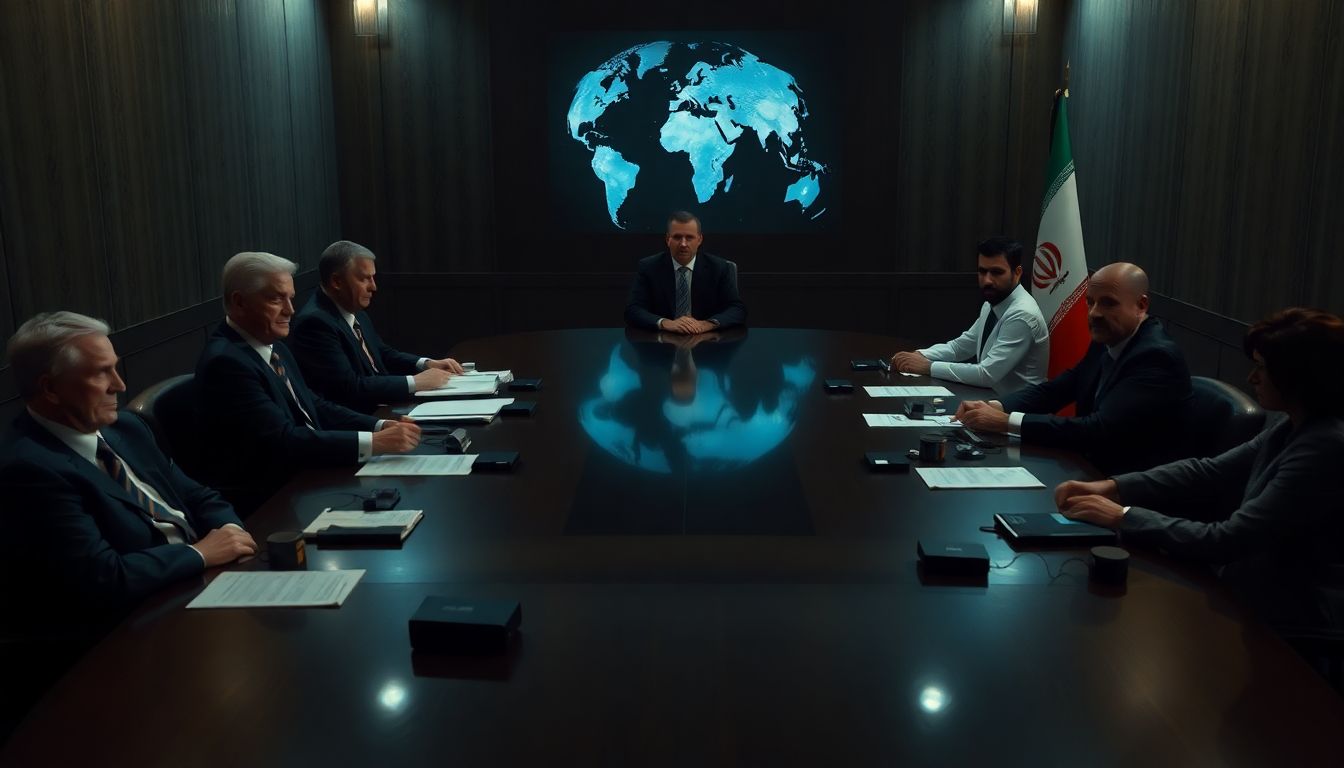 |
| US in Direct Nuclear Talks with Iran, Trump Says |
US in Direct Nuclear Talks with Iran, Trump Says
Imagine the US and Iran, long-time rivals, actually talking? Well, that's what former President Trump claimed! He said the US was having direct nuclear talks with Iran. Was he right? What does it all mean? This announcement surprised everyone. We'll explore the potential impact on world peace. We'll also look at regional stability and if this is just another diplomatic game.
Trump's Announcement: Context and Details
Let's unpack this bombshell. When and where did Trump make this claim? Also, what exactly did he say? What's the difference between direct and indirect discussions anyway?
The Timing of the Revelation
Why announce this now? Was Trump reacting to something specific? Or was it a strategic move? Maybe it was about domestic politics, or perhaps international pressure was mounting. The timing is key. The surrounding context matters. This could be about anything from sanctions to upcoming elections.
Specifics of the Claim: Direct vs. Indirect Talks
What did Trump actually say about these "direct" talks? Did he give any specifics? Like, who was involved or what they hoped to achieve? Direct talks mean face-to-face meetings. Indirect talks could be through intermediaries, like other countries. The difference is big! Did he offer details?
Reactions to Trump's Statement
How did people react? Did Iran confirm the talks? What did US allies say? Were they supportive or did they raise concerns? The world was watching. Everyone wanted to know if this was real or just talk. This included Iranian officials and global powers.
The Potential Implications of Direct Talks
If the US and Iran are talking, what could happen? How might these talks impact the nuclear issue and the region? A lot is at stake here.
Easing Tensions and De-escalation
Could these talks cool things down? Could they lead to less hostility? Maybe they can build trust. What steps might they take to show they're serious? Maybe they could release prisoners or ease up on military exercises. Less tension is good for everyone.
Reviving the JCPOA or Negotiating a New Deal
Could they bring back the old nuclear deal (JCPOA)? Or would they try to make a new one? What would be the hardest parts to agree on? The original deal limited Iran's nuclear program. In return, sanctions were lifted. Getting back to that, or finding something new, is a big deal.
Impact on Regional Stability
How would these talks affect places like Yemen and Syria? The US and Iran have different interests in these conflicts. Could talking help solve these problems? Or make them worse? Regional stability is crucial. Direct talks need to consider these conflicts.
Challenges and Obstacles to Successful Negotiations
It won't be easy. There are many things that could go wrong. What are the biggest hurdles?
Mistrust and Historical Grievances
The US and Iran don't trust each other. They have a long history of problems. Can they overcome this past? Can they move forward despite old conflicts? Overcoming decades of bad blood is essential.
Hardliners in Both Countries
Some people in both the US and Iran don't want to compromise. These "hardliners" could make things difficult. Can the negotiators ignore them? Or will their influence derail the talks? Internal politics matter here.
Sanctions and Economic Pressure
The US has put sanctions on Iran. How do these sanctions affect the talks? Do they help or hurt the chances of a deal? It's a balancing act. Sanctions can be used as leverage. But they can also create an impasse.
The Role of Other Global Powers
Other countries are watching closely. They also have a role to play. Who are the key players?
European Union's Mediation Efforts
The EU has tried to help the US and Iran talk. What have they done? Are they making progress? The EU wants to avoid conflict. They're trying to bridge the gap.
China and Russia's Interests
China and Russia have their own interests in the region. How might they influence the talks? Do they want a deal? Or something else? Their strategic goals matter.
The Perspective of Middle Eastern Allies
What do countries like Saudi Arabia and Israel think? They are important players. Do they support the talks? Or are they worried? Their concerns need to be considered.
Future Outlook and Scenarios
What could happen next? What are the best and worst possibilities? The future is uncertain.
Optimistic Scenario: A Breakthrough Agreement
Imagine a deal that solves the nuclear issue. What would that look like? How would it affect the region? A comprehensive agreement would be amazing. It could bring peace and prosperity.
Pessimistic Scenario: Escalation and Conflict
What if the talks fail? Could tensions rise? Could there be a war? Failure is a real possibility. Military conflict would be disastrous.
The Importance of Continued Diplomacy
Even if things get tough, the US and Iran need to keep talking. Diplomacy is the best way to avoid disaster. It's important to keep trying, even with setbacks.
Conclusion
Trump's announcement about US-Iran talks has big implications. There are many challenges, but also opportunities. Other countries are involved, too. The future is uncertain, but diplomacy is key. The relationship between the US and Iran matters to the whole world. We must watch closely to see what happens next.


